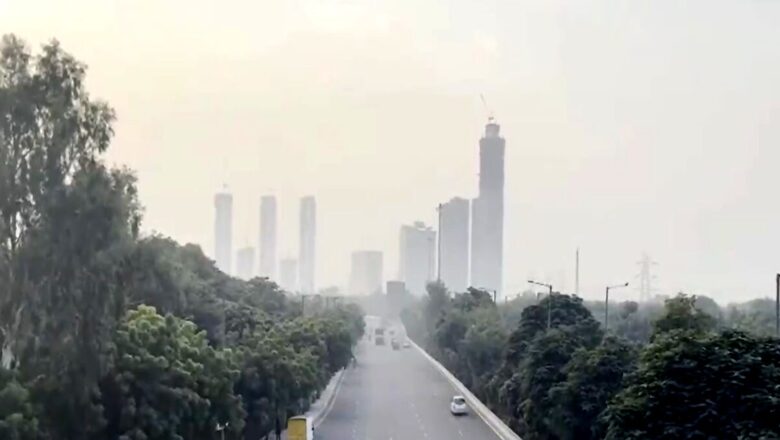
views
The air quality of Delhi and National Capital Region (NCR) has stooped down to the ‘poor’ category, with the Air Quality Index (AQI) reaching up to 400 in some places.
The AQI recorded across Delhi at 8 am on Sunday is:
– Mundka: 411
– ITO: 203
– NSIT Dwarka: 318
– Dilshad Garden: 237
– Jahangirpuri: 258
– North Campus: 258
Visuals from Noida show smog-filled skies as the air quality hit the ‘poor’ level. The smog atmosphere also affected the visibility in the region.
#WATCH | Uttar Pradesh: Visuals from Noida as the Air Quality Index dips to ‘Poor’ category pic.twitter.com/AkAHDLtDfD— ANI UP/Uttarakhand (@ANINewsUP) October 15, 2023
Another reason for the spike in the air quality is the arrival of the stubble burning season.
Delhi Lt Governor V K Saxena on Saturday wrote to the chief ministers of Punjab and Haryana expressing concern over the rise in stubble fires in their states and asked them to take remedial measures to protect the national capital from increased air pollution during winter season.
In his letter to Punjab Chief Minister Bhagwant Mann, Saxena said it is “extremely worrisome” that the incidents of stubble burning between September 15 and October 11 have reached 1,063 — 300 more than the figure for the corresponding period last year.
“Between October 24, 2022 and November 2, 2022, there had been an increase of 19 per cent in the incidents of parali burning in comparison to the corresponding period of the previous year. You would also recall that last year, of the 5 states that affect Delhi’s air quality, Punjab had remained the only non-performing outlier,” said the LG.
“It is extremely worrisome that the incidents of crop residue burning in Haryana from September 15 to October 11 this year have reached 340, which is 257 more than the figure of 83 in the corresponding period during 2022,” Saxena said.
The paddy stubble (parali) left in the fields after harvest is set on fire by the farmers in many states primarily Punjab, Haryana, and Uttar Pradesh leading to a smoke cover shrouding Delhi in winter when the temperatures plummet.
The Delhi LG asked both the chief ministers to expedite remedial measures to prevent stubble burning and save Delhi from choking.
The air quality in the national capital has been consistently falling into the poor category since the last week.
The Pollution Action Plan of the national capital came into effect on October 7 after the air quality stooped down to the ‘poor’ category. In fact, certain parts of Delhi also recorded an AQI in the above 300 range, which is labelled as ‘severe’.
The Centre’s Graded Response Action Plan (GRAP) to check the state’s air pollution during winters came into effect with the implementation of first stage of the plan, a NDTV report said. Vehicles that visibly cause pollution will receive heavy fine impositions, while trucks not destined for Delhi will be diverted via eastern or western peripherals.
The Centre’s air quality panel on October 6 directed authorities in the National Capital Region to enforce a ban on coal usage in hotels and restaurants, and to take punitive measures against polluting industries and thermal power plants as the air quality in Delhi plunged into the ‘poor’ category.
The Commission for Air Quality Management (CAQM), a statutory body responsible for proactively implementing GRAP, reported a “sudden decline” in air quality parameters in the region over the last 24 hours, with Delhi’s AQI reaching 212 (in the ‘poor’ category).
“It is essential to invoke Stage-I of GRAP immediately throughout the entire NCR to take steps to prevent further deterioration of air quality in the region,” the commission said in a statement.
Meanwhile, the Indian Meteorological Department (IMD) has predicted a partly cloudy sky with the possibility of very light rain or drizzle on Sunday evening. The minimum temperature in Delhi settled at 21.6 degrees Celsius on Sunday morning, which is two notches above the average temperature of the season. The maximum temperature is expected to settle at around 35 degrees Celsius.
An AQI between 0-50 is considered “good”, 51-100 “satisfactory”, 101-200 “moderate”, 201-300 “poor”, 301-400 “very poor” and 401-500 “severe”. An AQI above 500 falls in the “severe plus” category.
(With inputs from PTI)


















Comments
0 comment